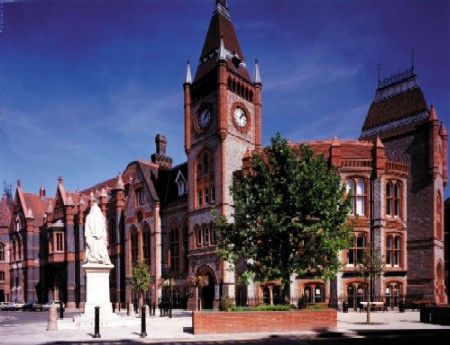Reading Branch Programme

All enquiries to Chris Sexton – sexton44@gmail.com Tel 01344 779321 or 07957 184342
HA members, students and school pupils free. Non-members visitors £3. Associate branch membership £10 per annum.
Venue: Reading School, Erleigh Road, Reading RG1 5LW. Suppers precede each lecture from 6pm – cost £20 per person – are held in the school’s refectory and the lectures take place in the Lecture Theatre. Cars can only enter the site via Erleigh Rd, Reading RG1 5LR.
For the gate code and / or a map of the school layout, contact sexton44@gmail.com
Reading Programme 2025-26
Friday17 October 2025, 8.00pm (AGM 7.30pm)
Dr Frank Tallett formerly Head of the School of Humanities, University of Reading (University of Reading)
From the Armada to Nelson, the Victory, and the Battle of Trafalgar: The Rise of British Naval Mastery
This year marks the 220th anniversary of the battle of Trafalgar, an iconic moment in British naval history. By focusing on the engagement at Trafalgar and the earlier one against the Armada, this lecture seeks to establish how, why and when England came to rule the waves.
Friday 14 November 2025, 7.30 pm
Dr David Lewis (Fellow of Kellogg College, Oxford)
Gothic Revival for Changing Times: Two architects' vision for the British city
This talk will examine the influence of the Gothic Revival on the visual culture of British cities. By focusing on the work of two influential architects– A.W.N. Pugin, co-designer of the Houses of Parliament, and Sir Giles Gilbert Scott, architect of Liverpool Anglican Cathedral and Battersea Power Station – it will demonstrate how the ideas they articulated about urban architecture impacted the look of British cities in the first half of the 19th and 20th centuries respectively. A comparison of their design philosophies will show the way Gothic Revival ideas were adapted to changing times. This is also a story of the power of history, of the way an examination of the past helped to address modern challenges and shape modern art.
Friday 5 December 2025, 7.30pm
Professor David Carpenter (Kings College, London)
Why the 800th Anniversary of Magna Carta is 2025, not 2015
In this talk David Carpenter explains why the 800th anniversary of Magna Carta is 2025, and not 2015. He traces successive editions of the Charter between 1215 and 1225 and explains how the 1225 version had new and special qualities that ensured its survival.
Friday 30 January 2026, 7.30pm
Professor Anthony Best (London School of Economics and Political Science)
Drifting Apart: The Untangling of Anglo-Japanese Relations, 1922-1939
This paper will look at why the relationship between Britain and Japan that had developed during the years of the alliance (1902-1922) began to unravel during the 1920s and 1930s. It will do this through looking at the evolution of the interactions between the British and Japanese government and peoples in the political, economic and cultural spheres. It will thus demonstrate that these years witnessed a growing divide, in which alienation took place over a whole range of activities.
Friday 27 February 2026, 7.30pm
Professor Lyndal Roper (Oriel College, Oxford – and holder of Regius Chair in History)
The German Peasants’ War and 1525: Why you should care about it
2025 marked the 500th anniversary of the German Peasants’ War. This was the biggest uprising in Western European history before the French Revolution. Somewhere between seventy and a hundred-thousand people died, perhaps one per cent of the male population; thousands more took part. It stretched from down near Switzerland through Alsace, southern Germany, Thuringia, Saxony and around to Austria and the Tyrol. Over 600 monasteries were attacked. But most people in this country have never heard of it. Why? In this lecture Professor Lyndal Roper will explain why the German Peasants’ War is so important, and how it transforms our understanding of the Reformation. She will also talk about how it has been celebrated this year, and what this tells about the differences between the former East and former West Germany today.
Friday 13 March 2026, 7.30pm
Professor Josephine Quinn (Professor of Ancient History, Fellow & Director of Studies, St John’s College, Cambridge)
How the World Made the West
The West, the story goes, was built on the ideas and values of Ancient Greece and Rome, rediscovered after centuries of at least semi-darkness by the scholars of the Renaissance. But what if that isn't true? I’ll argue in this talk, based on my recent book, that much of our shared history has been lost, drowned out by the concept – developed in the Victorian era – of separate 'civilisations'. Once we move past that model, we can see history differently: made out of relationships, not cultures. Millennia of global encounters and exchange built what we now call the West, as societies met, tangled and sometimes grew apart. It is contact and connections, rather than solitary civilisations, that drive historical change. And it is not peoples that make history – people do.

